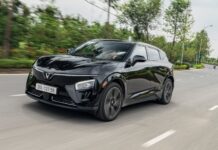Nissan is facing a financial crisis, with only 12-14 months of survival without a new investor, according to Financial Times. The Japanese automotive giant is seeking a stable, long-term investor such as a bank or an insurance company to replace Renault, as the latter sells its Nissan shares. This development comes at a critical time for Nissan, which recently formed a new electric vehicle partnership with Honda in March.

Nissan is in a financial crisis and can only survive for 12-14 months without a new investor.
Nissan has been in a fragile state since its brush with bankruptcy in 1999. Now, with Renault selling its shares, Nissan is in urgent need of a new investor to stabilize its finances. A senior figure close to Nissan revealed that the company has “12 or 14 months to exist,” highlighting the severity of the situation.
Nissan has accelerated discussions with its domestic rival in the electric vehicle and software-driven vehicle (SDV) space to counter intense competition from Chinese automakers and the challenging US market, further complicated by Donald Trump’s re-election. The company is considering all options, including the possibility of Honda acquiring some of its shares, as it faces declining sales in both China and the US.

Nissan and Honda announced their collaboration on electric vehicles and SDVs in August this year.
According to Financial Times sources, Renault is open to selling some of its Nissan shares to Honda as part of a broader alliance restructuring. This move is seen as a positive step by Nissan, and a stronger relationship between the two Japanese companies could benefit Renault as well. While both Nissan and Honda initially played down the idea of a capital alliance, the deepening partnership in SDVs in August 2024 has changed the dynamics.
However, a source from Financial Times noted that Honda’s purchase of Nissan shares would still be a “last resort.” Both companies declined to comment when contacted by Financial Times reporters, with Nissan’s representative emphasizing the strategic importance of the Honda partnership and their mutual goal of accelerating operational results through frequent management-level interactions.
Nissan’s immediate priority is to secure a key investor while stemming its financial losses. The company’s precarious situation has attracted interest from Effissimo Capital Management in Singapore and Hong Kong’s Oasis Management, both known for their involvement with other Japanese companies such as Toshiba and Nintendo.
Just weeks ago, Nissan reported a loss of 9 billion yen (approximately $60.3 million), leading to job cuts and a 20% reduction in global production. The company also acknowledged its failure to capitalize on the growing demand for hybrid vehicles in the US market and is now planning to launch a series of critical products in the coming months and years. Nissan’s senior leadership recognizes the challenges ahead, particularly the need to focus on the Japanese and US markets to generate much-needed cash.
Renault’s ownership of Nissan has been a point of contention, with Renault holding 43% of Nissan’s shares while the latter only owns 15% of the French company without voting rights. A recent adjustment reduced Renault’s stake in Nissan to just under 36%, and Nissan gained voting rights for its Renault shares.
Additionally, Nissan holds 34% of alliance partner Mitsubishi’s shares but plans to divest up to 10% as part of its emergency recovery measures. Mitsubishi is also engaged in a partnership with Honda, further complicating the dynamics between these automotive giants.
While Renault is not directly involved in the discussions between Nissan and Honda, sources suggest that the French automaker may be open to collaboration to counter competition from Chinese companies. However, Renault denied any such talks in a statement, expressing support for a “mutually beneficial relationship” between Nissan and Honda.
The outcome of the Nissan-Honda partnership will be a test case for smaller companies navigating the turbulent automotive industry, offering an alternative to mega-mergers like Stellantis. As one senior executive pondered, “Is bigger really better? Or is partnership a better model?” The pursuit of scale, they argued, can lead to inefficiencies beyond a certain point.
A potential alliance between Nissan, Honda, Renault, and Mitsubishi makes strategic sense, with Honda and Nissan focusing on their key markets of China, the US, and Japan, while Renault brings Europe into the equation. Additionally, both Renault and Honda are attracted to Mitsubishi’s strength in Southeast Asia and its plug-in hybrid engine technology. Mitsubishi has expressed its willingness to explore all possibilities and seeks collaboration in areas where it can leverage its strengths.








































